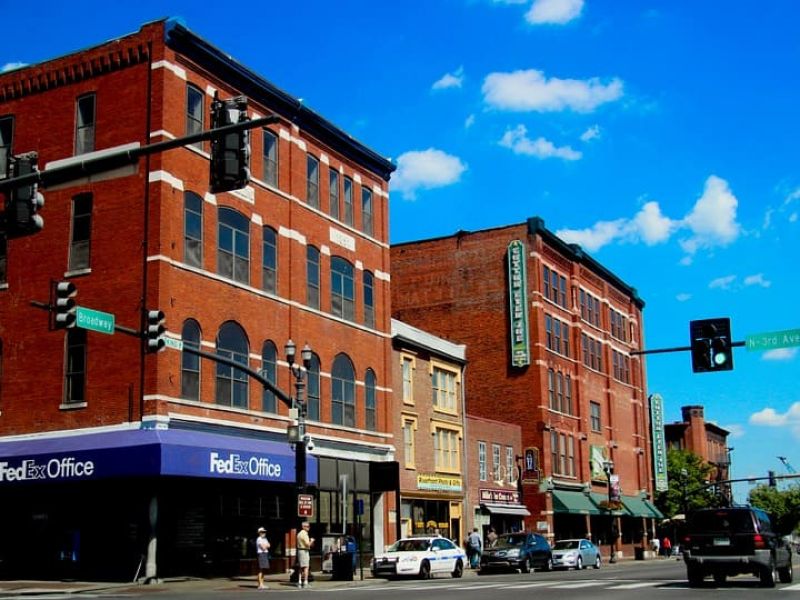Retirees have always been drawn to real estate investing as a reliable way to boost their nest egg. The appeal is clear – a steady income stream during your golden years on top of your pension or social security. Real estate as retirement income offers a unique opportunity to generate a constant stream of income throughout your golden years on top of your pension or social security.
Plus, real estate can be a hedge against inflation, meaning its value tends to rise over time, keeping your purchasing power strong. But like any big decision, it’s essential to know the ins and outs before you jump in. If you’re considering real estate to build your retirement nest egg, you’ll want to explore all your options.
Let’s explore the possibilities together.
An Overview of Real Estate as Retirement Income
Real estate investing involves purchasing properties to generate income through renting vs. buying them at a higher price. It includes single-family homes, apartment complexes, commercial spaces, or undeveloped land. A recent study by the National Association of Realtors revealed that 24% of home buyers in 2023 were investors, highlighting the growing interest in real estate as a retirement income source.
The real magic of real estate lies in its potential to grow your wealth over time while providing a steady stream of rental income, which is the perfect combination for a comfortable retirement. Unlike the stock market’s rollercoaster ride, real estate offers a more stable investment, with the bonus of being a tangible asset you can see and touch. And remember the tax perks and the joy of building a legacy!
It’s no wonder many retirees turn to real estate to secure their financial future!

Benefits of Real Estate as Retirement Income
Real estate has always been a popular way to build wealth, and it’s gaining even more traction as a critical player in retirement planning. More and more folks realize that real estate offers unique advantages that make it a solid choice for securing a comfortable retirement. So, what’s the big deal?
Let’s dive into the benefits of using real estate to fund your golden years –
- Steady Cash Flow – Receiving a consistent monthly check from your rental property – it’s like a paycheck that keeps coming in, even after you’ve stopped working. This reliable income stream can significantly supplement your retirement funds, providing peace of mind and financial security.
- Appreciation – You can enjoy the regular rental income, and your property’s value will likely grow. Think of it as a bonus nest egg that keeps increasing as the years go by. You can tap into this wealth through refinancing or selling, providing extra financial security in retirement.
- Tax Benefits – Uncle Sam offers a few perks to real estate investors. You can deduct expenses like mortgage interest, property depreciation, and maintenance costs, which can lower your tax bill and keep more money in your pocket. It’s like getting a little something back for leaping real estate.
- Inflation Hedge – With prices constantly on the rise, inflation can be a genuine concern for retirees. Real estate often acts as a “hedge” against inflation, meaning its value increases alongside the cost of living. It helps protect your investment and ensures that your money retains its purchasing power, even as prices rise.
? Related – What Is a Retirement Money Market Account?
Types of Real Estate Investments for Retirees
Regarding real estate investments for retirees, there’s a diverse range of options, each with potential benefits and drawbacks. It’s essential to thoroughly research and understand each investment option to determine what aligns best with your financial and retirement goals and risk tolerance.
Let’s explore some common types of real estate investments that retirees might find appealing –
1. Residential Rental Properties
Buying homes or apartments to rent out can be a great way to earn a steady, reliable income in retirement and provide you with peace of mind knowing you have a source of income to fall back on. It’s also a way to hedge against inflation, as rental income and property values tend to rise over time. Owning rental properties can offer tax benefits, such as deductions for mortgage interest, property taxes, and repairs.
2. Commercial Real Estate
Think office buildings, shops, or warehouses – these can bring in even more rent than homes, but they often require more money upfront, a deeper understanding of the market, and a more hands-on approach to management. Commercial leases tend to be longer than residential leases, which can offer more stability but can also be more complex to negotiate and manage.
3. Real Estate Investment Trusts (REITs)
REITs are a good option if you’d rather not be a landlord and are looking for a hands-off approach. These companies own and manage income-producing real estate, distributing a portion of their profits to shareholders through dividends. It allows you to benefit from the potential growth of the real estate market without the responsibility of property management.
4. Real Estate Crowdfunding
It is like joining forces with other investors to buy properties together, often through online platforms. It’s a way to get started with less money and spread your investments across different types of properties, reducing your overall risk. Be sure to carefully research the platform and the specific projects before you invest, paying close attention to the developers’ track record and the potential returns on investment.
5. Vacation Rentals
Turn your vacation home into a source of income! Rent it out to tourists when demand is high, and enjoy it yourself during the off-season. But be prepared to juggle managing the property, which includes cleaning, maintenance, and repairs, creating a fantastic guest experience. Comfortable amenities, clear communication, and a welcoming atmosphere are essential to happy renters and good reviews.
6. Real Estate Development
It involves building new properties from the ground up or renovating existing ones to create something new. While it can be very profitable, it also comes with higher risks and usually requires a lot of money upfront. It’s a longer-term investment that can be affected by regulations and changes in the market, so be prepared for the project to take time and require careful planning.
?♀ Also read – What is Phased Retirement? A Step-by-Step Guide
Rental Income Potential
Rental income potential refers to the estimated amount of money you can earn from renting a property. When evaluating real estate investments, it’s crucial to consider, especially for good monthly retirement income. Higher rental income can provide a more stable financial cushion, enhancing your overall retirement portfolio. Understanding the local rental market can help you set competitive rates and attract reliable tenants.
Let’s look at a hypothetical example of a rental property in a mid-sized city –
| Property Value | Monthly Rent | Property Taxes | Insurance | Maintenance | Management Fees | Monthly Cash Flow | Annual Cash Flow | Cap Rate |
| $300,000 | $1,500 | $3,600 | $1,200 | $500 | $150 | -$3,950 | -$47,400 | -15.80% |
| $500,000 | $2,000 | $6,000 | $1,800 | $750 | $200 | -$6,750 | -$81,000 | -16.20% |
| $700,000 | $2,500 | $8,400 | $2,400 | $1,000 | $250 | -$9,550 | -$114,600 | -16.37% |
Important Note – These are simplified examples and don’t include financing costs. The actual cash flow and return on investment will vary based on individual circumstances.
Things to Consider –
- Average annual returns for residential rental properties in the US are 5-10%
- The national average vacancy rate for rental properties is 6.4%
- Median home price in the US is $416,100 (as of Q1 2024)
Consider Management and Maintenance
Owning rental property requires ongoing management and maintenance. Decide if you will manage the property yourself or hire a property management company. Self-management can save money but requires time and effort. Professional management ensures the property is well-maintained, but it comes at a cost.
For example, property management fees can range from 8-12% of the monthly rent. If your property rents for $1,500 monthly, you could pay $120 to $180 monthly for management services. Maintenance costs also need to be factored in. A common rule of thumb is to have an annual retirement budget of 1% of the property value. For a $300,000 property, this would amount to $3,000 per year.
Below is a sample of typical maintenance costs for a $300,000 property –
| Maintenance Item | Estimated Annual Cost |
| Property Management Fees | $1,440 – $2,160 |
| Routine Maintenance | $1,500 |
| Major Repairs (e.g., roof) | $500 |
| Property Taxes | $3,000 |
| Insurance | $1,200 |
| Vacancies | $1,800 (1 month rent) |
| Total | $9,440 – $10,160 |
By accounting for these management and maintenance costs, you can better understand the ongoing financial commitment required for your rental property and make informed decisions about managing it effectively.
Recommended read – What is a Normal Retirement Age?
Calculate Potential Returns
Estimate the potential returns on your investment by understanding the income and retirement expenses associated with the property. Research average rental rates in the area; for instance, in 2023, the national average rent for a one-bedroom apartment was $1,500 monthly. Be realistic about occupancy rates, aiming for a healthy 95%. Consider expenses such as property management fees, ranging from 8-12% of the monthly rent.
Maintenance costs averaging 1% of the property value annually (e.g., $3,000 for a $300,000 property), as well as property taxes and insurance. While not guaranteed, property values may appreciate over time, historically at an average rate of 3-5% per year.
For example, a $300,000 property appreciating at 4% annually could be worth approximately $438,000 in 10 years.
By incorporating these estimates, you can better understand the potential financial performance of your real estate investment and its contribution to your retirement income.

Prepare for Potential Challenges
Investing in real estate can be a lucrative way to secure retirement income, but it’s challenging. Understanding and preparing for potential risks is crucial to ensure your investment remains profitable and sustainable. By being proactive and informed, you can navigate these challenges effectively.
Here are some critical challenges with solution strategies to mitigate them –
1. Market Fluctuations
Property values and rental income can fluctuate based on economic conditions. Economic downturns can significantly impact your rental income and property value. Conversely, strong economic growth can boost property values and increase rental demand, enhancing your returns. Staying informed about market trends can help you make proactive decisions and mitigate risks.
Solution – Diversify your real estate portfolio across different locations and property types to spread risk. Keep an eye on market trends and be prepared to adjust your strategy as needed.
2. Tenant Issues
Problematic tenants can lead to lost income and increased expenses. It can include non-payment of rent, property damage, or legal disputes. Conducting thorough tenant screenings can help mitigate these risks. A solid lease agreement and an understanding of tenant laws can protect your investment and reduce potential issues.
Solution – Conduct thorough tenant screenings and establish clear lease agreements. Consider hiring a property management company to handle tenant relations and issues professionally.
3. Unexpected Expenses
Major repairs or legal issues can arise, requiring additional funds. These expenses can strain your cash flow and impact your overall return on investment. Regular property inspections and a well-maintained emergency fund can help you manage these unexpected costs. Comprehensive insurance coverage can provide a safety net against unforeseen expenses.
Solution – Maintain an emergency fund specifically for your real estate investments. Regularly inspect and maintain properties to prevent significant issues and consider insurance options to cover potential legal and repair costs.
Mitigate these challenges with solutions by having an emergency fund and considering insurance options.
In a Nutshell
Real estate as retirement income offers retirees a powerful way to boost their retirement income and build lasting wealth, protecting their savings from inflation. But before you jump in, do your research. Look into different ways you can invest in real estate. Be honest about your budget and how much risk you’re okay with. And don’t be afraid to ask a pro for advice. You’ll be in good shape with the correct info and a solid plan.
You’ll enjoy financial security and peace of mind.
How Relo.AI Can Help with Real Estate as Retirement Income
If you’re considering real estate as a source of retirement income, Relo.AI can provide invaluable support and expertise.
Here’s why you should choose us –
- Comprehensive Market Analysis
- Property Management Solutions
- Risk Mitigation Strategies
- Customized Investment Plans
Schedule a call with one of our experts today and find out how we can help secure your financial future.
Fill out the form on our website to get started.









